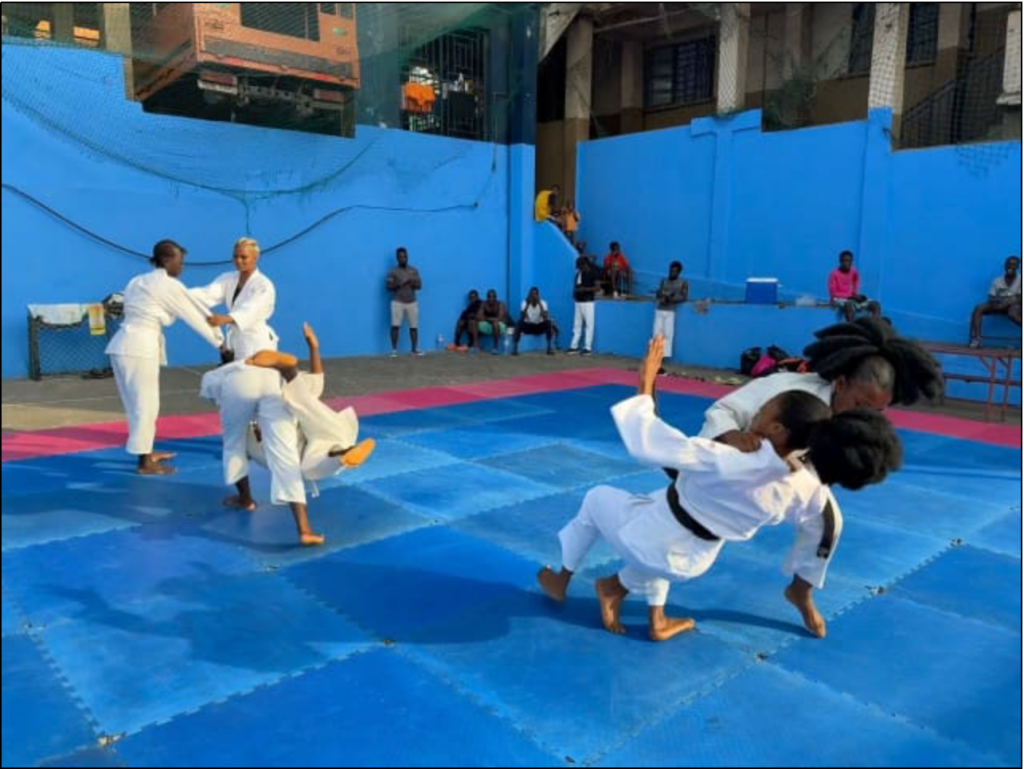In 2024, the IJF Academy made a significant stop in Sierra Leone, conducting a vital practical session aimed at empowering women through the sport of judo. Slavisa Bradic, one of the Academy’s experts, led the initiative, engaging with local female judoka to gain insight into their experiences and the positive impact judo can have on their lives.
The session unfolded in an open-air dojo, where a small women’s team showcased their skills in a judo demonstration. This modest setting highlighted the resilience and determination of female judoka in Sierra Leone, who face various challenges in a society where discrimination remains prevalent. Through conversations with four participants, it became clear that practising judo is not just a sport for them; it is a powerful means of overcoming societal obstacles and fostering personal growth. The judoka unanimously expressed that judo serves as an excellent vehicle for building strength, confidence, and self-respect. For many, the motivation to engage in judo stems from its role in developing self-defence skills, which are particularly valuable in their context. Participants shared that misconceptions surrounding women’s involvement in judo—stemming from the belief that it is a sport solely for men—dissipate when they demonstrate their expertise and capabilities on the mat. A prominent role model for these athletes is Koroma Mariama, who proudly represented Sierra Leone at the Olympic Games in Paris. Her achievements inspire young female judoka to aspire to greatness and to challenge societal norms. Despite their passion and dedication, the female judoka faces significant hurdles, particularly concerning training facilities and educational opportunities. They expressed a strong desire to improve their skills and achieve competitive success, as well as a commitment to passing on their knowledge to future generations.
The Sierra Leone Judo Federation, led by President Idrissa Massaquoi, recognizes the need to increase the participation of women in the sport. Currently, around 20 women actively practice judo, but the federation aims to grow this number through collaboration with the National Olympic Committee and the IJF. Their commitment to investing in women’s judo is seen as a crucial step toward the sport’s future success in Sierra Leone. As the country moves forward from its challenging past, the focus on empowering women through judo holds great promise. By addressing current issues while envisioning a brighter future, the sport can thrive, benefiting both female athletes and the broader community in Sierra Leone and beyond.
